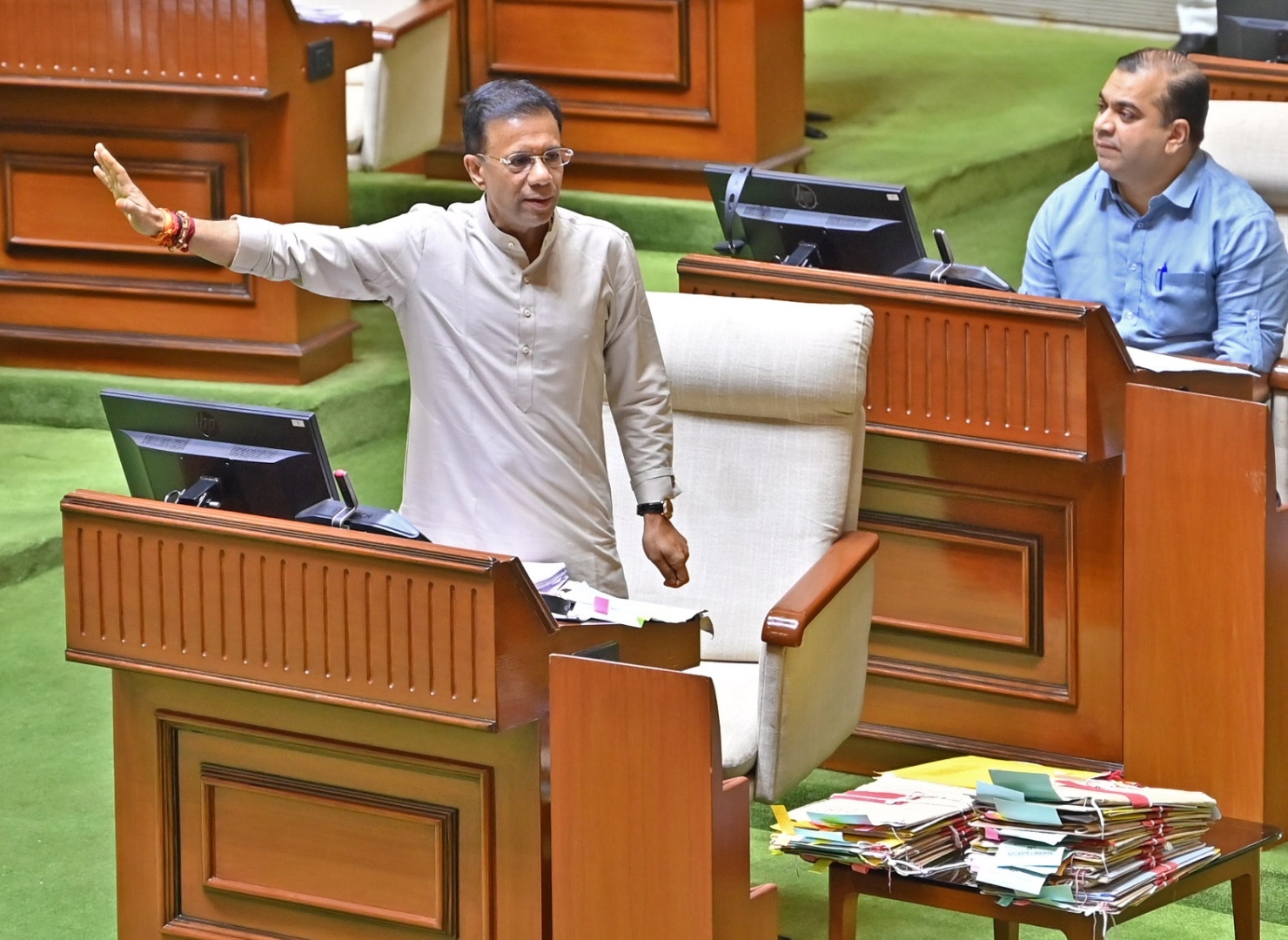
Health Minister Vishwajit Rane speaks in the Assembly.
PANAJI
Health Minister Vishwajit Rane on Thursday told the Goa Legislative Assembly that primary health centres (PHCs) across the State are being upgraded and state-of-the-art health infrastructure is being created under the Directorate of Health Services.
Rane said it is a step towards equitable access to healthcare for all citizens.
Replying to the discussion on the demands for grants pertaining to Health, GMC and IPHB, Rane said PHCs in Sanguem, Curtorim, Candolim, Mormugao, Cuncolim, Betki, Marcaim and Porvorim are being upgraded.
Rane also said a committee headed by the Chief Minister and comprising the Chief Secretary, Health Secretary and several doctors, including directors of some AIIMS, will be formed to advise the State on the way forward in the health sector.
Rane also said that Goa was at the top in the country for performance in emergency services through the 108 ambulance service. "We are the only State which has cardiac ambulances in the emergency services system," Rane said.
On GMC, the Health Minister said that the Super Speciality Block was rendering excellent service to Goans and the entire team — doctors, nurses and other paramedic staff — were doing a good job.
Earlier, during the discussion on the demands, several MLAs had raised individual issues related to their own constituencies vis-à-vis the health centres and sub-health centres, and also related to the GMC.
Leader of the Opposition, Yuri Alemao, had suggested that more attention needs to be paid to mental health and that the IPHB must be made the nerve centre. He also underscored the need for a Suicide Prevention Task Force (SPTF) for the State.
---
Scam in medicine procurement: Borkar
PANAJI: St Andre MLA, Viresh Borkar, alleged a scam in medicine procurement at the Goa Medical College (GMC). He claimed that the issue has been flagged by the CAG several times, but it has had no effect.
He alleged that GMC officials are consistently junking the annual rate contract tender method and procuring medicines under the short-tender system, resulting in nearly 100 per cent higher costs and wasteful spending of public money.